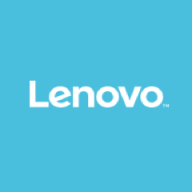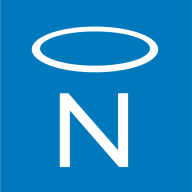



Find out what your peers are saying about Dell Technologies, NetApp, Hewlett Packard Enterprise and others in All-Flash Storage.



Pure Storage FlashArray//X is the world’s first enterprise-class, all-NVMe flash storage array. It represents a new class of storage – shared accelerated storage, which is a term coined by Gartner – that delivers major breakthroughs in performance, simplicity, and consolidation.
To meet enterprise storage requirements, ThinkSystem All-Flash DM Series systems provide high performance, superior flexibility, and best-in-class data management. DM Series runs on ONTAP data management software, which gives customers unified storage across block-and-file workloads. It accelerates your business while improving the efficiency, flexibility, and reliability of your IT operations.
The NetApp A-Series and C-Series are AFF storage arrays that deliver high performance, scalability, and simplified data management for a wide range of workloads. They are designed for organizations that need to improve the performance and agility of their applications, while also reducing costs and complexity.
NetApp A-Series and C-Series feature a scale-out architecture that can be scaled to meet the needs of your growing business. They also support a wide range of built-in data protection and data security features, including snapshots, replication, disaster recovery, and autonomous ransomware protection.
AFF A-Series all-flash systems deliver industry-leading performance, density, scalability, security, and network connectivity.
AFF C-Series systems are suited for large-capacity deployment as an affordable way to modernize your data center to all flash and also connect to the cloud.
NetApp AFF Benefits
NetApp AFF Features
Reviews from Real Users
NetApp AFF stands out among its competitors for a number of reasons. Two major ones are its high performance and simplicity. PeerSpot users take note of the advantages of these features in their reviews:
PeerSpot user and Storage Administrator, Daniel Rúnar Friðþjófsson, comments “AFF has helped to simplify our infrastructure, while still getting very high performance for our business-critical applications. Having all these things working well on one solution is really good. We run this as the backbone for both Hyper-V and VMware as well as an archive location for Rubrik. So, it is great having one solution that can do it all.
Because of the ease of it all, you have a highly tunable, high-performance storage system that alleviates a lot of problems. With its ease of management, you can quickly get your work done and go onto the next thing on your list.”
Additionally, Mohan Reddy, Sr. Technology Architect at a Pharma/Biotech company comments on how “NetApp's ONTAP data management software has also made tasks simpler for us. There's no question about that. It has helped us run operations very quickly, saving us a lot of time. Before ONTAP, we used to spend a long time doing regular operations, but with the latest version of the tool, our day-to-day operations are much quicker and easier.”
Virtualization, containers, databases, analytics, cloud computing, digital media, and technical applications demand high-performance, ultra-efficient storage. By supporting virtually any block, file, and object protocol simultaneously, ExaFlash all-flash arrays provide the versatility to meet diverse workload requirements. Precise QoS controls, unrivaled in the industry, let you optimize the storage for your exact needs. The purpose-built architecture delivers high availability and maximum performance while minimizing power consumption and footprint. All ExaFlash arrays can be managed in one elegant interface, simplifying administration as your business grows.